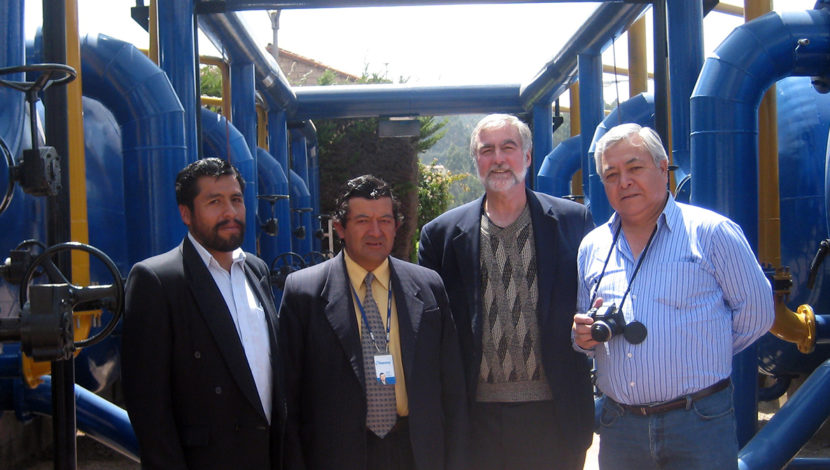The Unitarian Universalist Service Committee advances human rights through grassroots collaborations.
The Right to Water and Dissent in Peru

August 30, 2010
On the second half of his recent journey abroad, UUSC Interim President Bill Schulz spent time in Peru meeting with a partner organization working on the human right to water. In the following blog post, written Saturday, August 28, from his final stop in Cuzco, he reflects on issues of water privatization and free expression.
Peruvian oil companies, subsidiaries of large international companies, process a barrel of oil for $8. Then they sell that barrel back to the consumers for $80. Similarly, Peru has abundant water supplies but lags the rest of the world in the accessibility of that water to the people.
Much of the reason for both conditions is the privatization of control. But we also know that public control of oil and water does not guarantee access at reasonable prices, either. Some combination of public and private is obviously the best solution, with the needs of the consumers, especially the most marginalized consumers, being paramount. Working all that out is a complicated business. UUSC is fortunate to have one of the world’s leading experts on the human right to water, Patricia Jones — with whom I have been traveling this week — on our staff to think these issues through.
And we are fortunate as well to have smart, pragmatic partners like the Federation of Unions of Water Workers of Peru (FENTAP), a democratic union of water and sanitation workers, to work with us. We’ve met with Luis Ivarra, the head of FENTAP, and his colleagues for two days, first in Lima and yesterday in Cuzco, exploring the complexities of making safe, affordable water as easily accessible as possible. The water utility in Cuzco, which we visited, is a pioneer in this respect.
One thing we know for sure: if people are not permitted free expression of their concerns and grievances, little will ever change and solutions will remain elusive. I asked those with whom we met in Lima whether the government would permit mass nonviolent demonstrations for rights. “Yes,” they replied. “On two conditions: first, that the demonstration was in support of the government. And second, that it challenged no current centers of power!”
UUSC is working to solve the water crisis around the world, but in a larger sense we are also working to protect the rights of dissent and free expression everywhere. The two go hand in hand.

